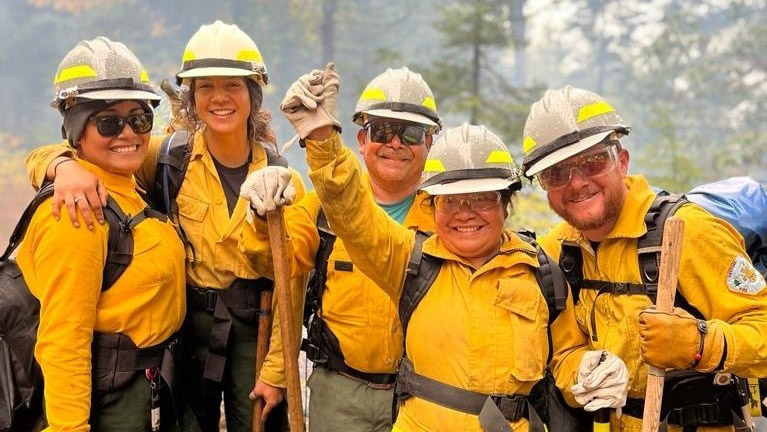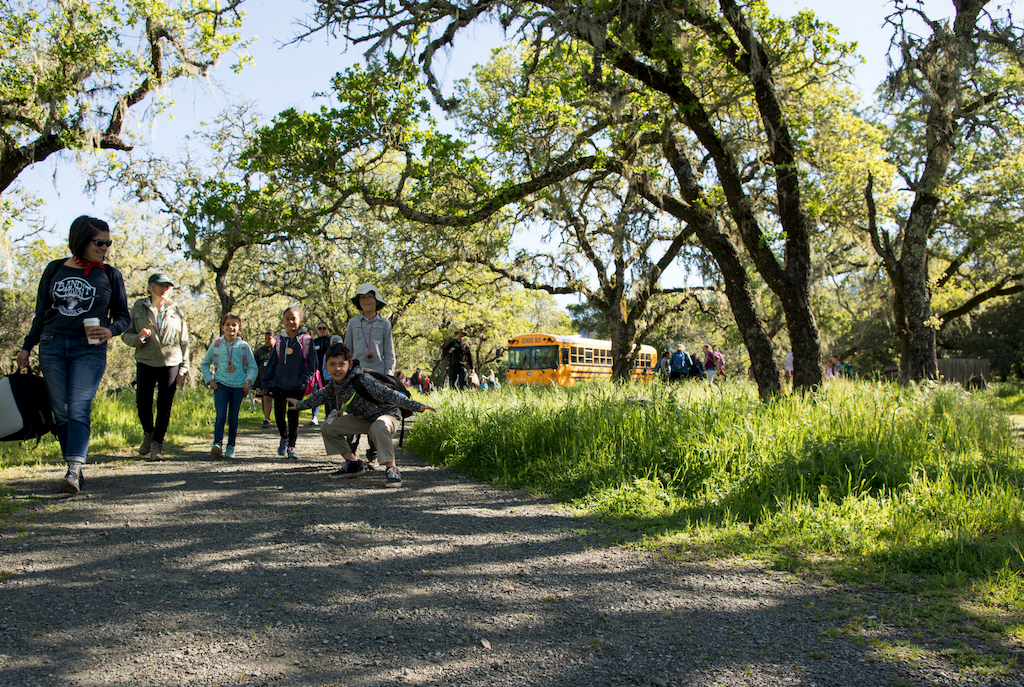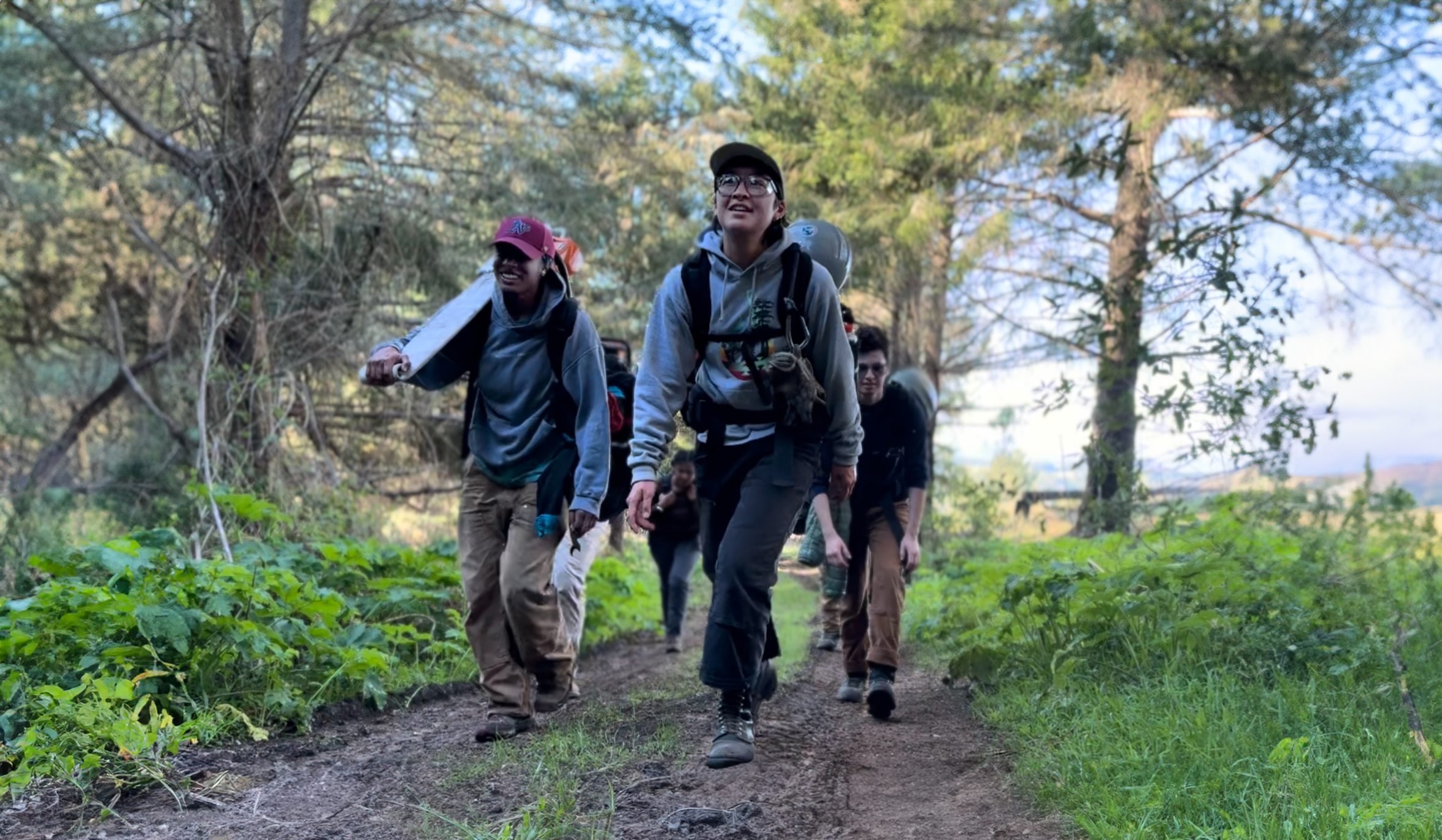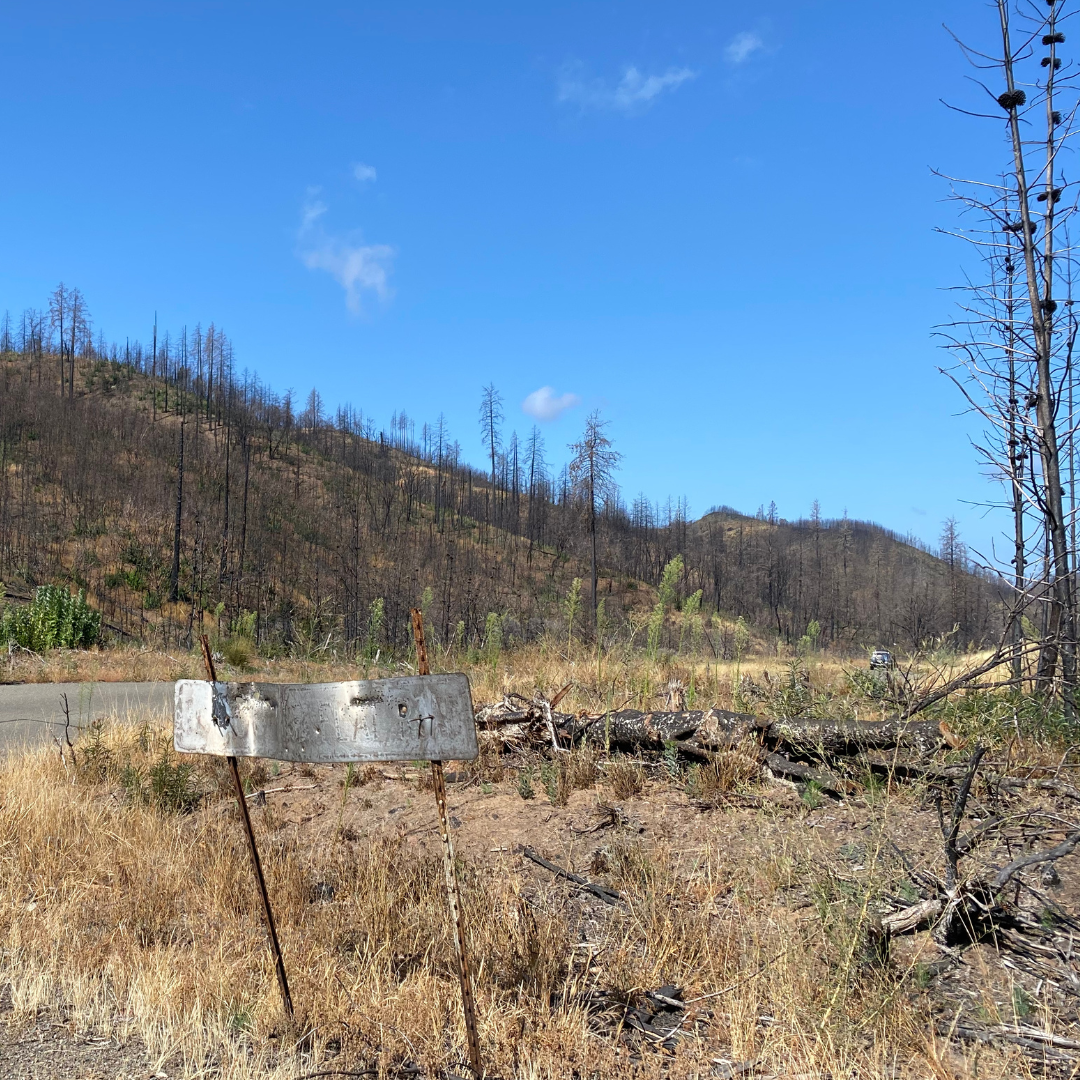|
Getting your Trinity Audio player ready...
|
A growing number of courses offered in Spanish
A continuing call for climate-resilient job skills from people working in the agriculture sector has guided efforts by North Bay Jobs with Justice, The Watershed Research & Training Center, and Audubon Canyon Ranch to deliver on additional prescribed fire courses and workshops held in Spanish. Participation among farmworkers and other worker-leaders remains high.
In late 2022, our organizations hosted the first ever Spanish language Basic 32 Wildland Firefighting and Firelighting course in the U.S. to support immigrant and Indigenous workers who want to broaden opportunities within their current places of employment or outside of traditional farmworker roles. The Basic 32 course covers 5 National Wildfire Coordinating Group classes every wildland firefighter must complete in order to receive qualification as a basic wildland firefighter (FFT2). A grant from California Fire Safe Council provided stipends to attendees to offset any lost wages while completing the course, which included 32 hours of field-based training and instruction and a timed, weighted physical test. Participants ended the week of training by participating in a pile burn that was a part of the 2022 North Bay TREX event.
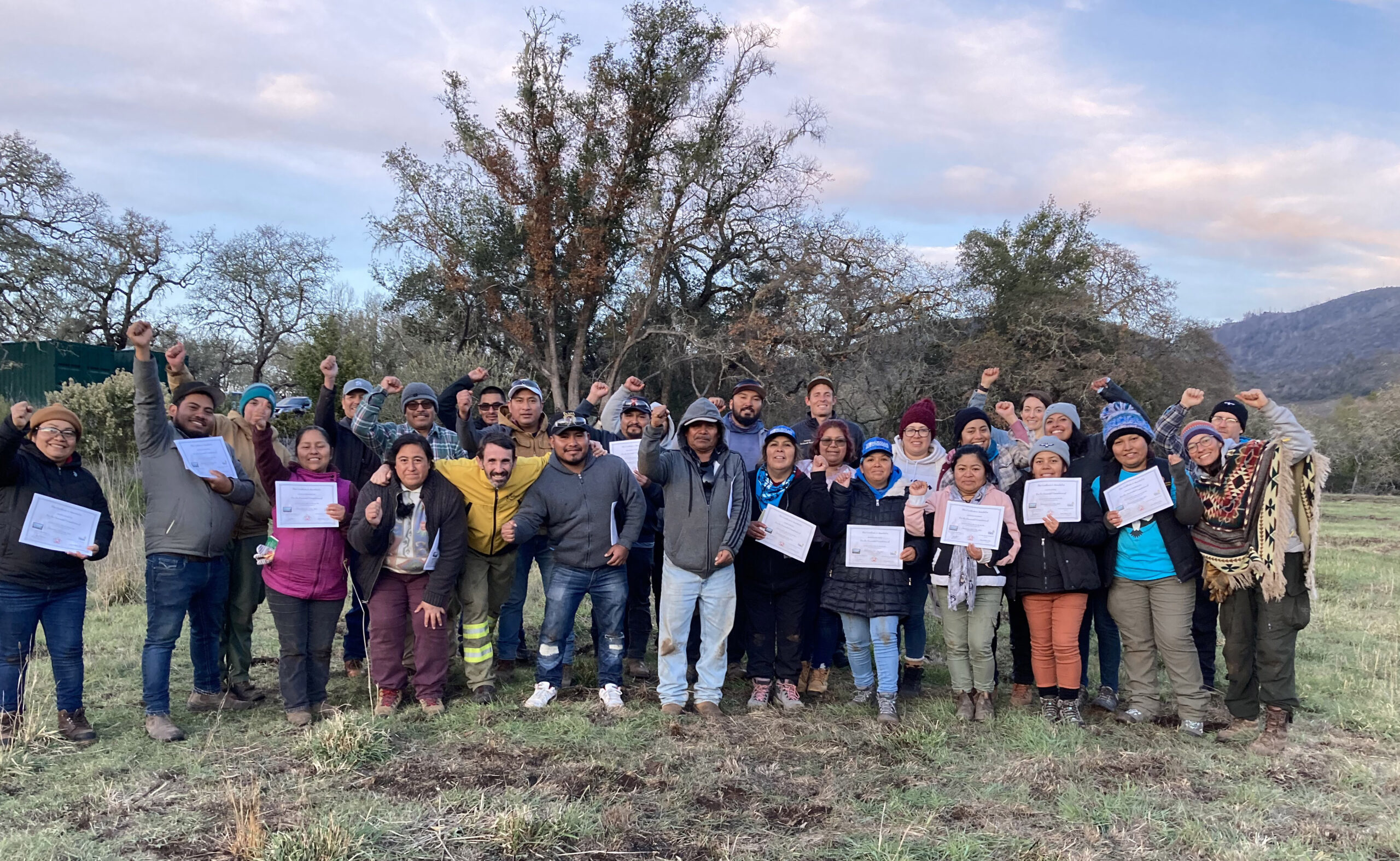
Nearly two dozen trainees received a certification in the Basic 32 course. Since then, individuals from this first cohort have been invited to attend additional fireline trainings and courses in Spanish, including an annual refresher (RT-130), chainsaws for wildland fire (S-212), a chainsaws field training, and several pile burning workshops. Chainsaw trainings also included workers who have an interest in joining the fireline trainings but were not able to join the initial Basic 32 course. Many of these workshops were held at Monan’s Rill, an intentional community in northeast Santa Rosa, with support from fire practitioner and Good Fire Alliance community member Thea Maria Carlson.
In 2024, our organizations will continue to expand on the skills the workers have built over the past year with more field-based trainings and courses, including another offering of the Basic 32 training to a second cohort of individuals.
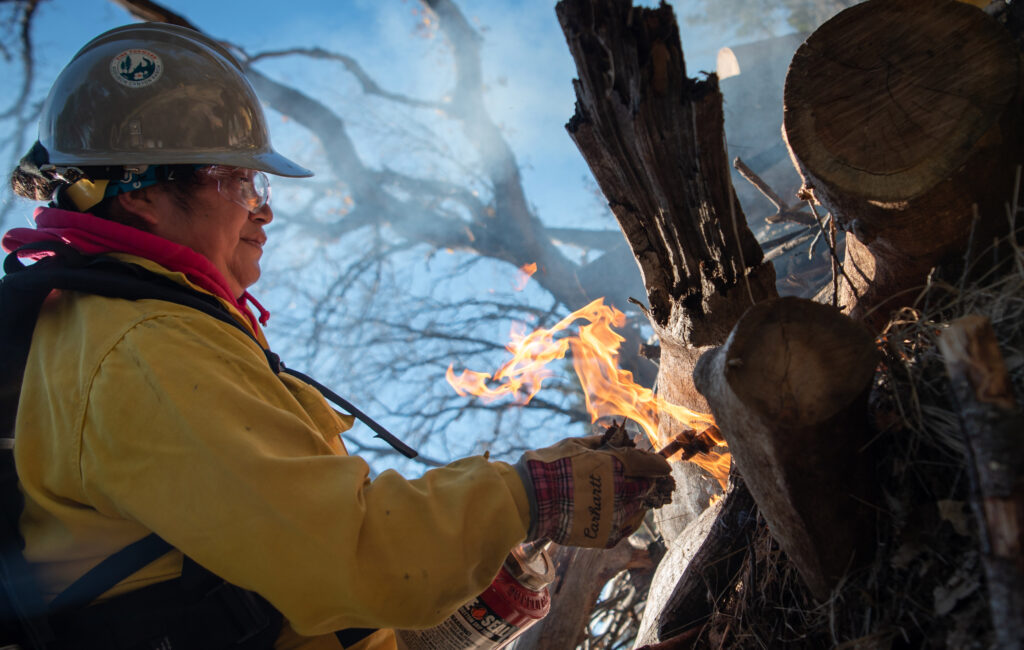
Some have worked through wildfires in the past or bring cultural experience of fire management
While the courses follow national guidelines and standards from the National Wildfire Coordinating Group, instructors have included time for students to share their own knowledge and experience of working with fire in their field work or in their countries or communities of origin.
Jose Luis Duce Aragües, one of the course instructors from the Watershed Research & Training Center sees fire as an ‘international language,’ a common ground, and space where people meet — the perfect moment to share and learn.
“So many people [in this group] are realizing how much knowledge they are already bringing. Maybe they don’t have the same technical words,” Anayeli Guzmán a 35-year-old Sonoma County farmworker, told the Sonoma Index-Tribune during the first training. “But learning those technical words is building off that knowledge.”
“This adds another skill to the work we have been doing to tend to the land,” Guzmán added.
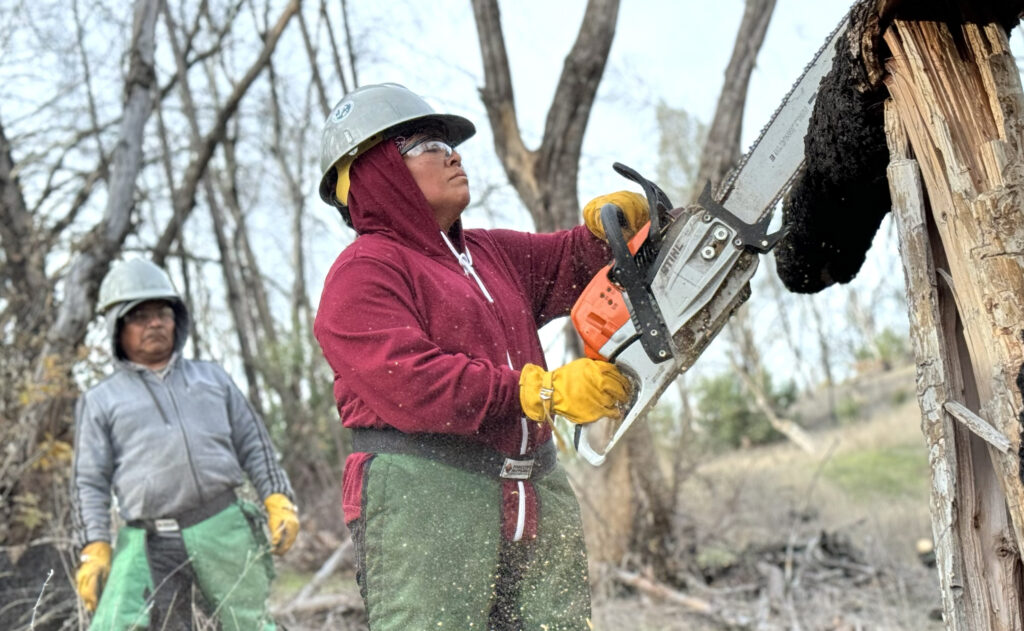
Field experiences support the coursework and build a sense of global unity
The newly skilled fire practitioners have met up with others throughout the year to work and learn together, often sharing familiar practices of tending land that are grounded in their ancestral and Indigenous roots and helping land managers tackle wildfire fuels reduction work.
Capping the first year of these trainings, the Watershed Research & Training Center hosted a two-week Spanish Prescribed Fire Training Exchange (Spanish TREX) in Northern California — logging 1,620 hours of prescribed fire training for 48 practitioners representing United States, México, Spain, Portugal, Costa Rica, Ecuador, Perú, Bolivia, Chile, and Argentina.
Hannah López, who manages partnerships for our Fire Forward program, has co-led and organized the trainings and attended the Spanish TREX as part of the event’s Incident Command Team. “I am continuously in awe of the places prescribed fire takes me. This was truly a beautiful experience,” they shared.
The experience was captured in an essay “Bringing People Together Across Language: The First Spanish TREX,” by instructors José Luis Duce Aragües and Andrea Bustos, and Erin Banwell, co-director of the Fire Management Program.
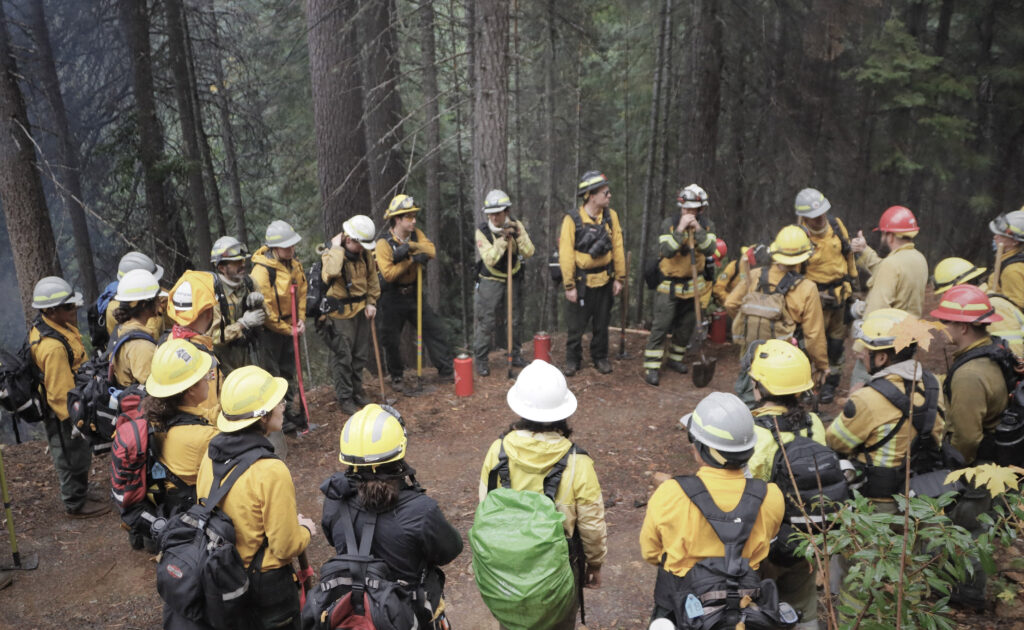
Climate-resilient jobs that sustain families
A key goal for our Fire Forward program is to ensure ethnic, cultural, and gender diversity among people who protect and care for our natural landscapes. “We are honored to be able to partner with these organizations and others to offer these foundational courses to Spanish speakers in our community,” said Tom Gardali, Audubon Canyon Ranch CEO.
For Sandra De Leon, who has worked in the vineyards for seven years, the trainings reflect a growing sense of greater community resilience. “After years of organizing to improve our treatment during hazardous conditions that we face in the vineyards like fire, smoke, and extreme heat, I am so excited that we are now also developing training opportunities in Spanish that can lead to family sustaining jobs.”
Speaking with a reporter from KQED after the first training, Sandra added, “Everything that I’m learning, what I really want to do is share it with other people so that they can also know how to take care of the land.”
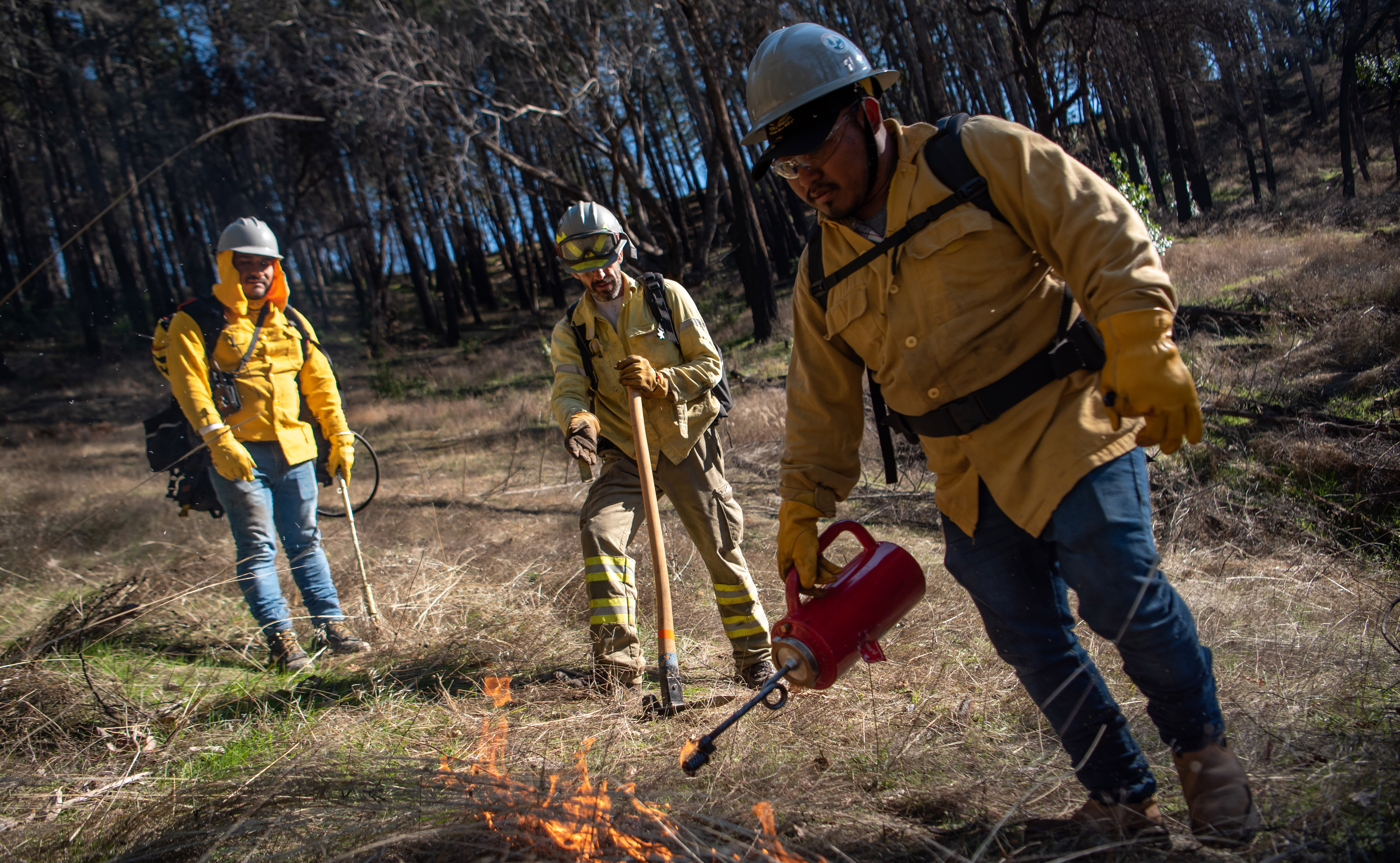
Learn more
To learn more about the work North Bay Jobs with Justice is doing to support the expansion of agricultural workers’ climate-resilient training and job skills, please visit North Bay Jobs with Justice.
Support the following organizations and communities partnering with them:
Watershed Resource & Training Center
CA Fire Safe Council
Monan’s Rill Community
Good Fire Alliance
Header image by Jen Mora
